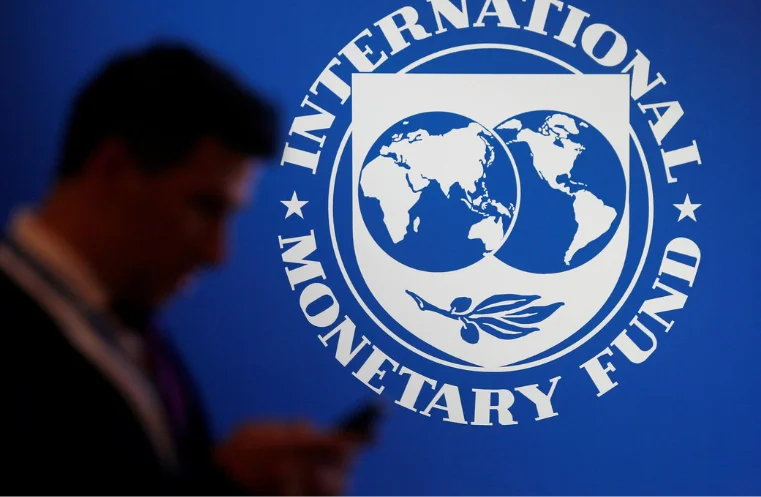Islamabad, Mar 13, 2025: Pakistan has informed the International Monetary Fund (IMF) about its plan to offer voluntary retirement packages to surplus employees, as revenue shortfalls remain a key issue in the final phase of ongoing discussions.
The IMF has questioned the necessity of maintaining federal ministries that oversee areas constitutionally assigned to provinces, according to a report by Express Tribune.
This week’s negotiations focused on Federal Board of Revenue (FBR) tax collection, reducing government size, and restructuring the Sovereign Wealth Fund in line with IMF requirements.
During briefings on administrative downsizing, the Cabinet Division disclosed plans to amend the Civil Servants Act 1973, which currently safeguards employees from layoffs.
This legislative amendment would allow the government to dismiss surplus personnel, preventing the retention of underperforming staff until retirement.
This measure aims to reshape the civil service structure, drawing parallels with military standards where only top performers progress in their careers.
The discussions revealed that savings from eliminating unfilled positions and consolidating approximately 10 minor departments would amount to Rs. 17 billion—significantly less than the government’s ambitious downsizing claims.
These efforts were further undermined last week when new units were established, and ministries were split to accommodate an increased number of ministers, advisors, and special assistants.
IMF officials raised concerns about Pakistan’s rationale for keeping federal ministries in provincial jurisdictions, such as the Federal Ministry of Education and the Ministry for National Health.
Read More:
PAC Uncovers Massive Financial Irregularities and Illegal Dealings
Recently, Prime Minister Shehbaz Sharif expanded his cabinet to over 50 members.
Some departments, like the Interior Ministry, exhibit duplication, with Mohsin Naqvi as Federal Minister, Pervaiz Khattak as an advisor with ministerial status, and Senator Talal Chaudhry as Minister of State. Similar redundancies exist in the health sector and other divisions.
The government intends to cut thousands of vacant positions from grades 1 to 22, anticipating savings of over Rs. 12 billion.
This includes nearly 700 posts in grades 17 to 22 (saving Rs. 2.5 billion) and numerous lower-grade positions (saving Rs. 10 billion).
The IMF suggested transferring surplus staff to provincial authorities and raised concerns about excessive staffing in the Public Sector Development Programme.
Revenue shortfalls emerged as a significant hurdle in negotiations, with the IMF rejecting FBR’s tax projections.
The finance ministry scrambled to identify spending cuts to bridge the fiscal gap.
Proposed measures include surrendering contingency funds, reducing non-essential expenses, and reevaluating primary budget surplus calculations.
Finance Minister Muhammad Aurangzeb met with the IMF mission chief to discuss a revised tax target for the fiscal year.
Officials remain optimistic that minor disagreements regarding revenue estimates and expenditure reductions will be resolved soon.
According to the report, merging, transferring, or shutting down around 10 organizations could save an additional Rs. 5 billion.
Some organizations, such as the Jammu & Kashmir Refugees Rehabilitation Organization, have already been closed, while the Chief Commissioner Afghan Refugees organization is undergoing restructuring.
Pakistan aims to repatriate Afghan refugees with Afghan Citizen Cards by March 31st.
Additionally, three entities—Special Economic Zones, Special Technology Zones Authority, and Export Processing Zones—will merge into the National Industrial Development Regulatory Authority.
The Islamabad Healthcare Regulatory Authority has integrated the Human Organs Transplant Authority, disbanded the National Trust for Population Welfare, and transferred Sheikh Zayed Postgraduate Hospital to Punjab’s provincial administration.
Further restructuring plans include shifting Pakistan Institute of Medical Sciences under Islamabad Capital Territory administration and shutting down both the National Fertilizer Corporation and National Productivity Organization.
The government has merged the Ministries of States and Frontier Regions with the Ministry of Kashmir Affairs and Gilgit-Baltistan and shifted the Aviation Division to the Defense Ministry.
However, the government has simultaneously created a new Public Affairs Unit, appointing Rana Mubashir Iqbal as federal minister and Abdul Rehman Kanju as Minister of State.
